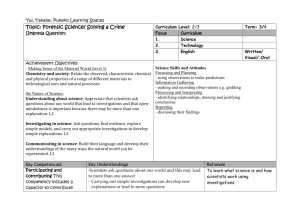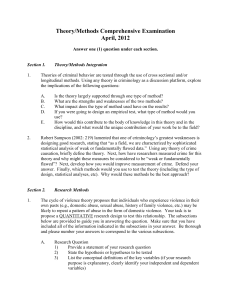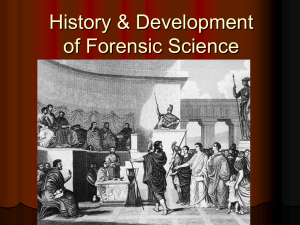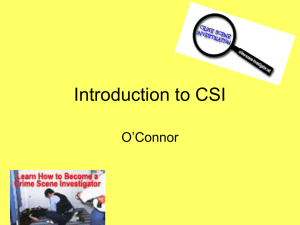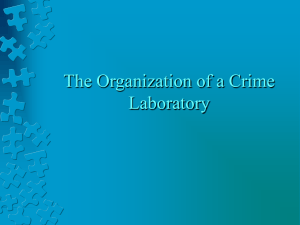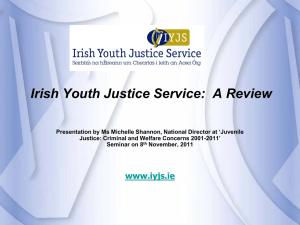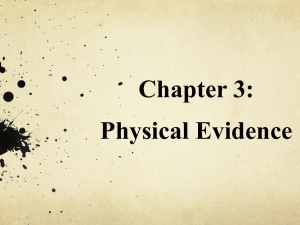History of Forensic Psychology
advertisement
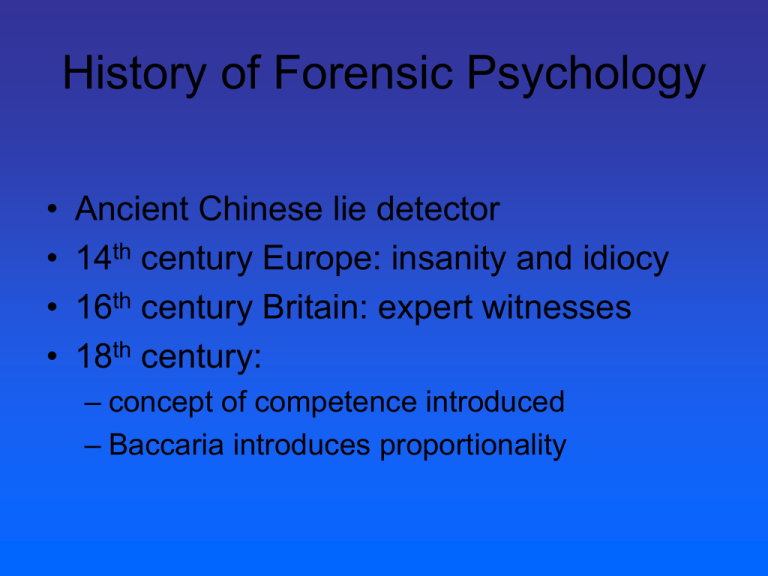
History of Forensic Psychology • • • • Ancient Chinese lie detector 14th century Europe: insanity and idiocy 16th century Britain: expert witnesses 18th century: – concept of competence introduced – Baccaria introduces proportionality History (continued) • 19th century: – Professional assessors of competence – Wundt introduces scientific psychology – Ebbinghaus studies human memory – Schrenk-Nortzing: first forensic psychology case – Introduction of geographical profiling – Introduction of psychological testing History (continued) • 20th century: – Nature/nurture controversy – Munstenberg introduces forensic psychology in civil cases • 21st century: – Professionalization of psychology – 1932: 1st forensic text – WWII: study of battle fatigue (PTSD) History (continued) – 1950’s: research on the validity and reliability of witnesses – 1960’s: research on rape and child sexual abuse – 1970’s Vietnam Vet’s syndrome (PTSD) – 1980’s research on divorce – 1980’s and 1990’s: studies on recovered memory syndrome – Today’s status of forensic psychology Forensic Psychology Today PSYCHOLOGICAL INFORMATION TO FACILITATE LEGAL DECISION-MAKING • Clinical/Police • Human Relations Experts • Social • Counseling • Correctional • Behavioural specialists • Organizational • Developmental • Pure & applied research • Clinicians • Consultation to police depts. • Mediation for litigating parties • Role-playing juries • Risk assessment • Competence/offender programs • Profiling • Assess social & penal programs • Neglect, physical & sexual abuse • Scientific data preparation • Develop treatment programs Theories of Crime (1) •Classical school of criminology: •Emphasized concept of free will •People CHOSE to become criminals •Positivist school of crimilogy: •Use of the scientific method to determine causes of crime •Biological theories: •Constitutional theory: Sheldon •Aggressive delinquents tend to be mesomorphs •Usually because they were early adolescents Theories of Crime (2) •Nature/Nurture issue: •Adoptive studies: •Twin studies: H-factor •What is inherited? Learning disabilities, frontal lobe issues and autonomic arousal problems, hormonal problems •Impulsivity •Difficulties learning •Excessive emotional reactivity Theories of Crime (3) •Sociological theories: •Structural problems in society •Anomie •Karen Horney: approach-approach and avoidanceavoidance conflicts (eg elevator experiment) •Competition vs. brotherly love •Theory of differential opportunity •All people are equal but some more equal than others •Credential society and the vertical mosaic Theories of Crime (4) •Reaction formation crime: •Active rejection of middle-class values •Rational crime: •Reinforced behaviour for crime •Eg. Welfare cheating •Subcultural crime: •Norms of the subgroup are different from the legislative majority (eg. Male and female circumcision)
